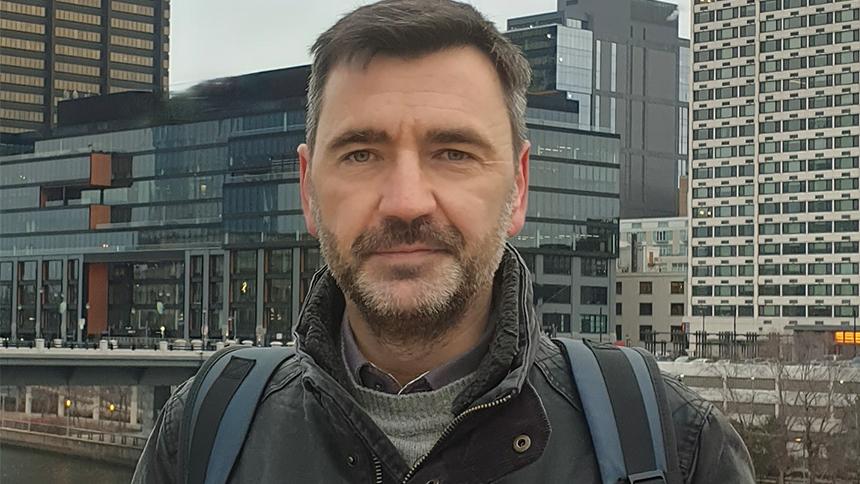Q&A: Geoff Parker on improving dementia diagnosis with MRI scans
Meet Geoff Parker, Professor of Healthcare Engineering, Imaging and Enterprise at UCL in London, who discusses his dementia research.
Favourite things?
-
Film – The Godfather part 1. There is so much that is captivating about it – the story, the era, the dated but stylish production and direction and, of course, the acting.
- Way to spend time – Walking in the countryside, preferably with a hill and some good company involved.
- Memory – A medley of summer holidays.

Why dementia research?
My background is in medical imaging research – mostly MRI. I was drawn to the possibilities around using MRI for understanding dementia better and for improving diagnosis.
For a technology that has been around for decades, it is amazing how it continues to evolve, providing powerful insights into how the brain works and how it is affected by dementia.
How has Alzheimer’s Society supported your work?
We have recently started a new MRI research project that has been funded by the Society.
The project will last until 2025 and has enabled us to bring together a team of incredibly talented and experienced researchers from UCL and the National Hospital for Neurology and Neurosurgery in London with widely different specialisms, all focusing on the same problem.
What are you currently working on?
There are two main themes to the dementia research in my group.
The first involves using MRI to understand how the brain’s blood vessels change during early Alzheimer’s disease.
We think this has relevance for early diagnosis, and perhaps for helping to monitor the effects of the new Alzheimer’s treatments that are emerging.
The second area is around massively speeding up the time it takes to perform an MRI scan for dementia diagnosis.
This typically takes 20–30 minutes during a hospital visit, and our work is reducing that time to less than 10 minutes – perhaps much less.
What difference do you hope this will make?
Our work on the brain’s blood vessels will improve our understanding of the early stages of Alzheimer’s development.
This may suggest new ways to diagnose the condition earlier on.
We hope that our rapid MRI scanning research will make MRI scans easier to access and more cost-effective.
This will ultimately improve the accuracy and speed of diagnosis, and it will make the MRI scanning experience easier for people being scanned.
In what direction would you like to take your research in future?
I would be very happy if our work on rapid MRI scans is able to help make MRI available to everyone undergoing investigation for possible dementia.
Sadly, this is not currently the case, even though MRI improves the accuracy of diagnosis, due to long waiting lists and the relatively high cost of a scan.
We think that ultra-rapid scanning is part of the solution to this problem.
At the same time, if we can help shed light on some of the early stages of dementia development, then we may enable earlier diagnosis.
This is likely to become increasingly important as more treatment options emerge over the coming years.
What you can do to help
Your donation funds increasingly important research, only possible with your help.

